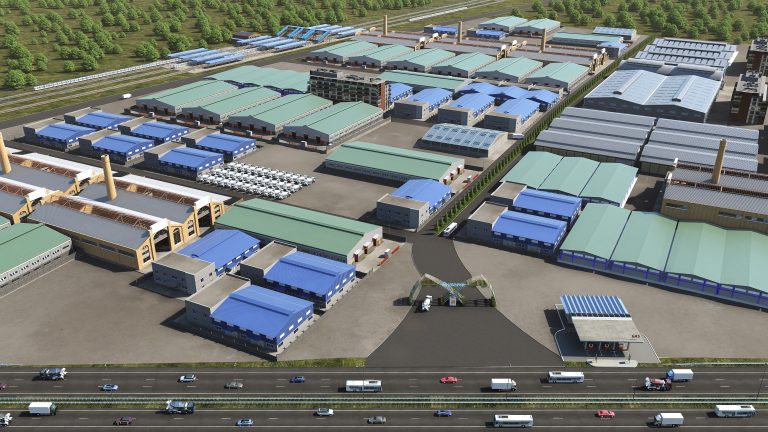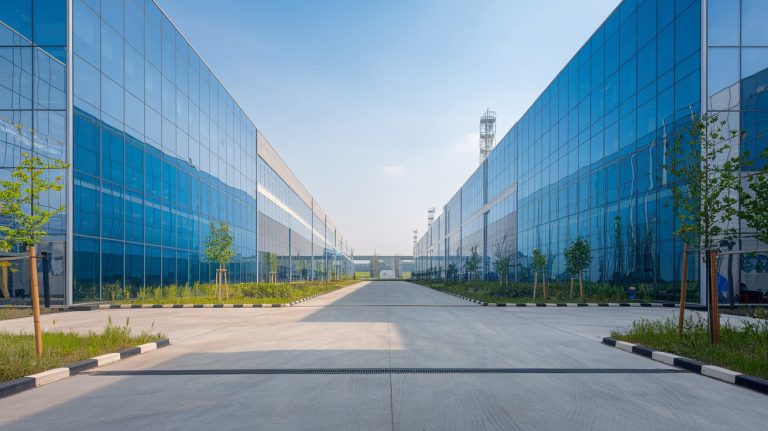How to Turn an Industrial Property into Your Next Big Money Maker
Investing in industrial property can be a powerful way to diversify and strengthen your real estate portfolio. Compared to residential or commercial spaces, industrial real estate—such as warehouses, factories, and storage facilities—can be more affordable to own and operate, while providing stable, long-term income from reliable tenants.
That being said, like any real estate investment, industrial property requires careful planning and thorough research. Without the right strategy, it can turn into a costly liability. This guide will outline the essential steps to ensure your industrial real estate investment is a success.
1. Clarify Your Investment Goals
Before you dive into industrial property investment, it’s critical to establish clear objectives. Consider the following questions:
- Do you plan to improve and sell the property for profit?
- Are you looking for a long-term tenant to provide consistent rental income?
- Or do you intend to use the property for your own business operations?
By defining your goals upfront, you’ll be better equipped to find a property that aligns with your vision. For instance, if your target is to attract local businesses or MSMEs, you’ll need to focus on industrial plots in areas where these businesses are flourishing. Clear communication of your intentions also helps ensure a smoother negotiation process with agents and sellers.
2. Plan for Future Growth
To ensure your investment in industrial property appreciates over time, it’s essential to consider its future potential. Evaluate the location and its prospects for growth. Properties with access to robust infrastructure and key transport links—like highways and ports—will always be more desirable.
Vaastu-compliant plots at Magna Star

Magna Star Industrial & Logistics Park in West Bengal, for example, offers ideal conditions for businesses needing convenient access to transportation hubs. The plots are even positioned to align with Vaastu Shastra principles, promoting prosperity and longevity for businesses.
Think long-term by considering factors like zoning regulations and redevelopment opportunities. Properties with room for expansion or flexible layouts will be more attractive in the years to come. A property that can accommodate both office and warehouse needs, with an optimal balance between the developers and the investors, can increase your credibility and reduce vacancy risks.
3. Location is Everything
When it comes to industrial property investments, location is the utmost important factor. In West Bengal, industrial hubs like Magna Star are growing rapidly due to their strategic location at NH2 Durgapur Expressway, Singur. The plots are near transportation networks, making them ideal for warehouses and eco-friendly factories.
Businesses, especially those in the logistics or manufacturing sectors, prioritize locations that offer efficient access to supply chains and consumer markets.
4. Stay Active in the Market
Being aware of current market trends is essential for spotting investment opportunities. Keep a close eye on property listings, attend industry events and auctions, and network with real estate agents who specialize in industrial property.

For instance, Magna Star recently participated in the Bengal Shopping Festival Expo. This event allowed us to showcase our projects to local businesses in West Bengal. Our industrial park offers ample space, options, and festive discounts for them to set up workshops or warehouses. Together, we can drive business and economic growth in the region.
In short, staying active in the market ensures you’ll be in the right place when the next great deal comes along and can help you make smarter investment choices.
5. Evaluate the Market Trends
Understanding the broader market trends is crucial to making informed investment decisions. Some noteworthy points are –
- Rising Demand for Warehouse Spaces
Businesses are securing well-connected warehouse spaces around Kolkata in anticipation of growing demand. - Strong Industrial Base
West Bengal boasts a robust industrial foundation and serves as a gateway to the East and Northeast, contributing 18.38% to India’s GDP. - Scheme for Approved Industrial Park (SAIP)
The SAIP aims to motivate the private sector to establish more industrial property and provide units for micro, small, and medium enterprises (MSMEs). A prime example is the Manafuli Industrial Park at Bagnan, a project by Manafuli Group.
By studying such type of trends and keeping an eye on infrastructure developments, MSMEs can ensure your property stays relevant and valuable. Keeping up with government initiatives aimed at boosting industrial growth is also beneficial.
6. Focus on Sustainability
Sustainability is increasingly important for businesses, especially in environmentally conscious logistics parks like Magna Star. Such industrial property not only complies with regulatory standards and security protocols but also serves as a model for other companies seeking safe, energy-efficient and pollution-free spaces.
This way businesses will increase their property’s attractiveness and stay ahead of future regulations that may mandate stricter environmental standards.
Last-Minute Essentials for Industrial Property Investors

These quick tips will help you optimize your investment and stay ahead of potential pitfalls. Make sure they’re part of your strategy.
- Research the local and national tax policies for industrial real estate to maximize your investment returns.
- Make sure the property has access to essential utilities like water, power, and internet, which are crucial for investors.
- Investors often require sufficient parking spaces and easy access for large trucks, especially in warehouse or logistics operations.
- Consider the availability of a skilled labour force near the industrial property, which can be a key factor for potential businesses.
- Conduct environmental impact assessments to avoid unexpected costs related to pollution cleanup or legal issues.
- Automation and smart technology are increasingly influencing industrial spaces.
- Look beyond the rental income and consider the property’s potential resale value in the future market.
- Develop strategies for maintaining long-term relationships, such as offering improvements or expansion options.
- Ensure that both parties have adequate insurance coverage for potential risks, such as fire, theft, or natural disasters.
Industrial property investment is a powerful way to enhance your real estate portfolio, especially in a market as dynamic as West Bengal. By focusing on the growing needs of local businesses and selecting strategically located industrial plots, you can tap into an emerging sector that promises long-term returns.


